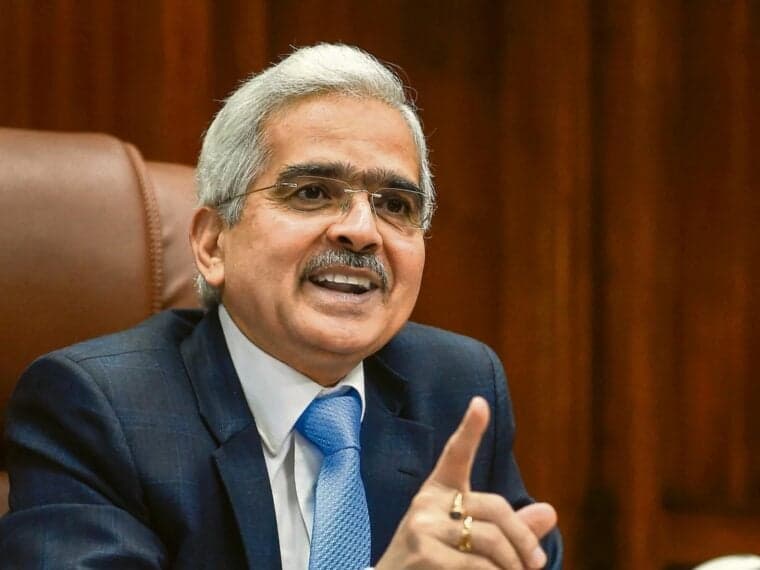
Das noted that these players cause several concerns such as mis-selling, unfair business practices, usurious interest rates and unethical loan recovery practices
The RBI governor said that regulated entities can’t wash their hands off while outsourcing any lending-related activities to third-party vendors
The RBI launched a set of guidelines for digital lending in August 2022, bringing sweeping changes to the $270 Bn industry
At an event on Friday (October 28), Shaktikanta Das, the governor of the Reserve Bank of India (RBI) said that while technology has made financial entities more efficient, it has also led to unregulated players getting backdoor access to the financial sector.
Das noted that these players don’t abide by the rules and cause several concerns such as mis-selling, breach of customer privacy, unfair business practices, usurious interest rates and unethical loan recovery practices.
“Customers are initially tempted to borrow from these entities because of simplified or no documentation requirements followed by prompt disbursals. It is only later that the customers realise the serious downsides to such borrowings,” said Das at the RBI Ombudsman event held in Jodhpur.
However, the governor added that even as RBI has sharpened its focus on customer service and protection, there are persistent complaints in some areas. Mis-selling, lack of transparency in pricing, high service charges and extreme penalties are some of the areas which have seen continued complaints.
“Stories in social media about the use of strong-arm tactics by some recovery agents overshadow the good work that is being done for customer protection, both by the regulated entities and the RBI,” he noted.
The governor added that this calls for a review of the working of the customer service and grievance redressal mechanism in the regulated entities (REs). He added that the root cause needs to be identified and corrective measures need to be undertaken.
Along similar lines, the RBI governor said that REs can’t wash their hands off while outsourcing any lending-related activities to third-party vendors. He stated that while it was the right of the REs to recover their dues, the use of strong-arm tactics was unacceptable to the central bank.
“Stronger board-level oversight and closer monitoring by senior management over outsourced functions, therefore, assume critical importance,” Das added. The comments come in light of several incidents where people have lost their lives due to continued harassment from third-party agents over unpaid dues.
The RBI launched a new set of guidelines for the digital lending space in August 2022, which sought to protect borrowers from unethical practices. Banks and non-banking financial institutions (NBFCs) have a deadline of November 30 to become compliant with the norms.
Some of the norms include giving customers more control over their data, the removal of a pass-through account and mandatory providing of a key fact statement to the borrowers.
In India, digital lending is one of the biggest subsectors within fintech and is a $270 Bn market, according to a report by Inc42. By 2030, digital lending is set to grow to a $1.3 Tn market opportunity, growing at a CAGR of 22%.




 Fintech
Fintech Travel Tech
Travel Tech Electric Vehicle
Electric Vehicle Health Tech
Health Tech Edtech
Edtech IT
IT Logistics
Logistics Retail
Retail Ecommerce
Ecommerce Startup Ecosystem
Startup Ecosystem Enterprise Tech
Enterprise Tech Clean Tech
Clean Tech Consumer Internet
Consumer Internet Agritech
Agritech




























